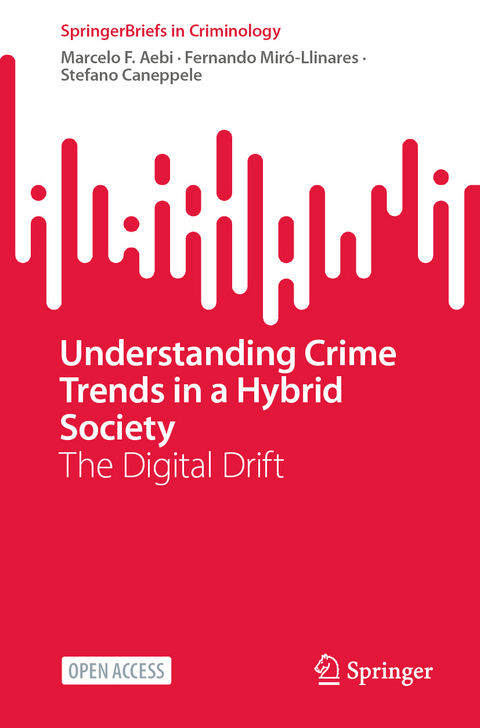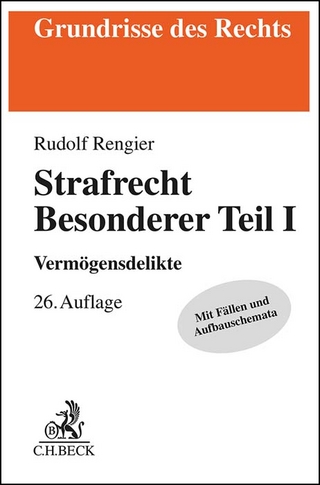
Understanding Crime Trends in a Hybrid Society
Springer International Publishing (Verlag)
978-3-031-72386-5 (ISBN)
- Noch nicht erschienen - erscheint am 04.02.2025
- Versandkostenfrei innerhalb Deutschlands
- Auch auf Rechnung
- Verfügbarkeit in der Filiale vor Ort prüfen
- Artikel merken
This open access book critically revisits 30 years of debate surrounding the evolution of crime trends, aiming to reconcile various hypotheses and controversies. It scrutinizes the concept of the "crime drop," highlighting the methodological pitfalls in understanding the causation mechanisms behind this phenomenon. By examining the impact of information and communication technologies (ICT) on daily routines and crime, the book challenges traditional notions of crime reduction.
Drawing on extensive examples, data from official and non-official statistics, and crime surveys, this book illustrates how cyberspace has fundamentally reshaped the nature of crime. Despite this transformation, integrating cybercrime into conventional crime statistics remains an unaccomplished task. The book offers a thorough methodological discussion on measuring cybercrime, addressing the challenges researchers face in quantifying and explaining crimes committed both in cyberspace and across physical and digital boundaries.
This book speaks to students, academics, researchers, and practitioners in the fields of criminology, criminal justice, and cybercrime. It is an invaluable resource for anyone seeking to understand the complexities of modern crime trends and the challenges posed by the digital age.
Marcelo F. Aebi, Ph.D., is Professor of Criminology at the University of Lausanne, Switzerland. He is responsible for the Council of Europe Annual Penal Statistics (SPACE), serves as Executive Secretary of the European Society of Criminology, and heads the European Sourcebook of Crime and Criminal Justice Statistics group of experts. Aebi specializes in comparative criminology and crime measurement, with research interests spanning prisons, probation, methodology, juvenile delinquency, drugs and crime, and victimization studies. He has authored over 200 scientific publications in several languages. Aebi contributes to various scientific advisory boards, including as Head of the International Advisory Board of the Netherlands Institute for the Study of Crime and Law Enforcement (NSCR). He also serves on the editorial boards of several prestigious criminology journals. Throughout his career, Aebi has held positions at the University of Sevilla and the Autonomous University of Barcelona and was formerly vice-director of the School of Criminal Justice at the University of Lausanne. His contributions to the field have been recognized with the Fernand Boulan Award from the International Association of Francophone Criminologists, and he is an Honorary member of the Italian Society of Criminology. For more information, visit marceloaebi.com..
Fernando Miró-Linares, Ph.D., is Professor of Criminology and Criminal Law at the Miguel Hernández University in Elche (Spain), and Chair of Crímina, the Research Centre for the Study and Prevention of Crime. His primary research interests lie in studying the relationship between crime and digital technology, utilizing different approaches, ranging from those derived from Environmental Criminology to others focusing on the role of the Criminal Justice System in the face of technological change. This encompasses areas such as the impact of digitalization on crime trends, cybercrime and particularly the cyberplaces where these crimes occur, disinformation and regulatory responses to it, and social networks as a new realm for criminal activity, among others, both from theoretical and empirical perspectives. He has worked for the Council of Europe, the European Research Council, and has led significant criminological projects at regional, national, and international levels. Throughout his research career, he has authored 10 books and more than 100 papers in several books and scientific journals.
Stefano Caneppele, Ph.D., is a Professor of Criminology and Deputy Director at the School of Criminal Justice at the University of Lausanne, Switzerland. He is a consultant expert for the Council of Europe and co-chairs the European Society of Criminology Working Group on Crime, Criminal Justice, and the COVID-19 Pandemic. His main research areas include crime prevention, cybercrime, economic crime, and organized crime. He is also an Associate Editor of the European Journal of Criminal Policy and Research.
Chapter 1 The Roots and Ramifications of Criminology's Progressive Ethos: Navigating Theory, Practice, and Politics.- Chapter 2 A narrative review of the debate on the so-called international crime drop.- Chapter 3 Digitalization, social change and crime trends: a literature review to build a conjecture.- Chapter 4 Crime Opportunities, Lockdowns, and online video Games: the digital leisure hypothesis (and more on the impact of digitalisation on crime trends).- Chapter 5 Observing, Measuring, and Researching Cybercrime: A scoping review of systematic reviews since 2000.
| Erscheint lt. Verlag | 4.2.2025 |
|---|---|
| Reihe/Serie | SpringerBriefs in Criminology |
| Zusatzinfo | X, 132 p. 10 illus., 6 illus. in color. |
| Verlagsort | Cham |
| Sprache | englisch |
| Maße | 155 x 235 mm |
| Themenwelt | Recht / Steuern ► Strafrecht ► Besonderes Strafrecht |
| Recht / Steuern ► Strafrecht ► Kriminologie | |
| Schlagworte | crime and new technologies • crime drop • Crime trends • cybercrime • cybercrime theories • dark figure of cybercrime |
| ISBN-10 | 3-031-72386-4 / 3031723864 |
| ISBN-13 | 978-3-031-72386-5 / 9783031723865 |
| Zustand | Neuware |
| Haben Sie eine Frage zum Produkt? |
aus dem Bereich


